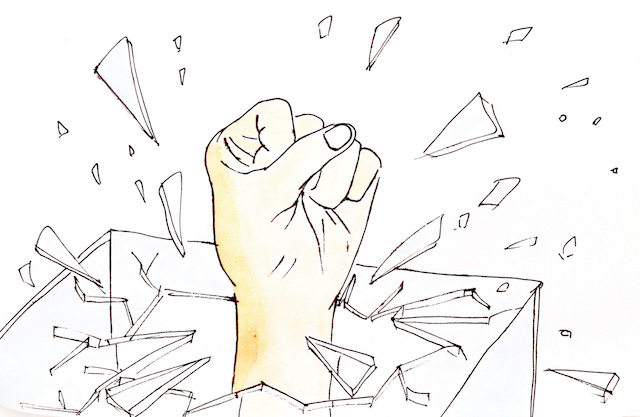By Kim Mandy
What is support? This is the ability to give assistance and help. This includes talking to each other, working with each other & listening to each other. It can vary from pro-active in which we jump around, scream and shout; to those on the quieter side who also support in their own way, mostly “behind the scenes”. Both of these are valuable and necessary for our club to continue to grow and become bigger and better; and above all to help the students become better and continue in their training journeys to achieve all that they can.
How can we support others in their training? By supporting and helping others we are also helping ourselves improve and further our learning process; whether it is by taking advice from instructors or fellow peers (students). In order to achieve this we need to communicate, work with each other and if necessary ask for help!
Training support structure consists of a combination of peers and mentors who help you to progress in your training. Support structure consist of instructors who you train with regularly or periodically, fellow students you discuss ups and downs of your training with and your training partners who help you push yourself past your limits and provide relative resistance and pressure to your training.
At every class the support network kicks in automatically as you will find the higher grade or more experienced student will assist or aid you in correction and help in improving your abilities. More often than not students are paired up with someone of a higher or more advanced level who will show the way and will help where necessary and in return the lower grade or more inexperienced student is also helping the more advanced student.
Without a training partner some techniques or new skills cannot progress. This is also true for the support of your club. Without students, instructors and parent or spectator support, a club of any kind would not exist. Support in various ways helps the growth and continuation of any club and especially with our club Seitou Ryu, we are a “family” and therefore have an excellent support network including all the above, i.e. instructors, parents and above all students. An example of this was shown through the generous support when we had our sponsored bike ride in order to purchase our training mats! Thank you to all who supported the club (and the students & parents who took part in the bike ride too!).
With training partners/fellow students, finding someone who has been or is at the same stage of training where you want to be can help you find your way faster than you might on your own. To be a good, supportive training partner you need to be accessible and need to care as much about your training as each other. You need to show trust and respect for each other, encouraging each other, helping each other and giving necessary assistance and you need to both have an area which you perform better in than each other so you can help and in turn support each other. You need to be able to ask questions and feel confident in offering advice and assistance. Trust & respect are a big part of support. We need to be able to give good advice and a good supportive training partner knows how to work with you and not against you.
Karate is not a “single-person” sport; it ultimately involves people working together by repetitive training and understanding of the art. We therefore support each other throughout our training journeys. As a fellow student we support our peers through mental and physical encouragement; as an instructor we support our students by physically helping them, giving encouragement, positive & negative criticism; and above all as parents we support our children in their training by always being there to give them the encouragement and constant reassurance they required. Good advice given to and taken from fellow students helps develop our own training and understanding.
Support given by fellow students, parents & instructors help us develop and progress in our karate journey. A grading is an example of how support can really help a student when under pressure and stresses of their particular grade. Without our fellow peers and mentors there when we need them most we feel let down and somewhat disappointed and sometimes even unable to reach our specific goals. By supporting our club we are in effect helping students improve their skills & abilities and further their training journey.







